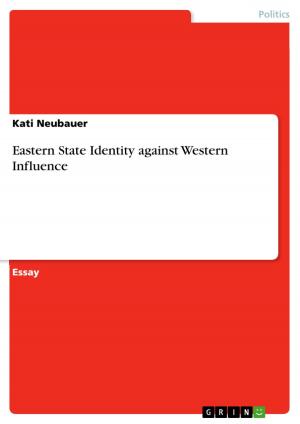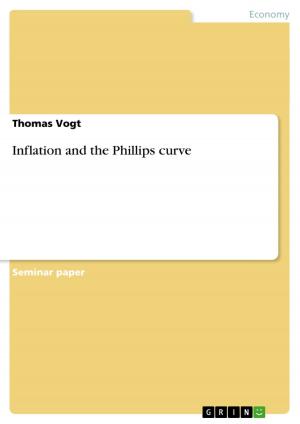Is the history of intelligence the secret history of the twentieth century, or just a good spy yarn?
Nonfiction, Entertainment, Drama, Anthologies| Author: | Michael Schmid | ISBN: | 9783638590921 |
| Publisher: | GRIN Publishing | Publication: | January 12, 2007 |
| Imprint: | GRIN Publishing | Language: | English |
| Author: | Michael Schmid |
| ISBN: | 9783638590921 |
| Publisher: | GRIN Publishing |
| Publication: | January 12, 2007 |
| Imprint: | GRIN Publishing |
| Language: | English |
Seminar paper from the year 2004 in the subject American Studies - Culture and Applied Geography, grade: 1,3, Indiana University (History Department), course: H 650 Foreign Relations in the American Century, 9 entries in the bibliography, language: English, abstract: The world of espionage is as fascinating and present in the current affairs of international relations as it is ambiguous. Although everybody can estimate the merits of intelligence work its significance for the development of historical events or even matters of today remains unclear. Part of the reason for that is certainly the secrecy under which operations are conducted and information is gathered, but also the unknown effects other factors and policy decisions have on a situation. It seems strangely familiar that we assume intelligence agencies have a very important role in the decision-making process of the policymakers and they probably do, but there has been and is a great debate among historians what kind of a role these agencies played and what their contribution was, if any, to the decisions ultimately made by the government officials. As we can witness today, this debate continues and will most likely never completely disappear. The latest controversy has shown this very clearly. What was the role of the intelligence community in the lead up process to the war in Iraq? How did certain findings or the absence of them influence the Bush Administration? Did the White House base its decisions on intelligence reports by the CIA or on personal convictions? And would different intelligence reports, or none at all, have made a difference in the course of events? Those are questions that will not and cannot be answered by this essay. But these are the latest examples of issues surrounding the same question that has been debated on for quite some time. Did intelligence work in the 20th century make a difference or would events have happened anyway? Along those lines another question has been formulated. How can we know for sure that one way or the other was the case? How can historians and other scholars shed light onto some of those pressing issues that are kept so secret? This essay will focus on some of these problems and methods of historians working on intelligence and will then provide a perspective on the matter of intelligence work and their effect on history.
Seminar paper from the year 2004 in the subject American Studies - Culture and Applied Geography, grade: 1,3, Indiana University (History Department), course: H 650 Foreign Relations in the American Century, 9 entries in the bibliography, language: English, abstract: The world of espionage is as fascinating and present in the current affairs of international relations as it is ambiguous. Although everybody can estimate the merits of intelligence work its significance for the development of historical events or even matters of today remains unclear. Part of the reason for that is certainly the secrecy under which operations are conducted and information is gathered, but also the unknown effects other factors and policy decisions have on a situation. It seems strangely familiar that we assume intelligence agencies have a very important role in the decision-making process of the policymakers and they probably do, but there has been and is a great debate among historians what kind of a role these agencies played and what their contribution was, if any, to the decisions ultimately made by the government officials. As we can witness today, this debate continues and will most likely never completely disappear. The latest controversy has shown this very clearly. What was the role of the intelligence community in the lead up process to the war in Iraq? How did certain findings or the absence of them influence the Bush Administration? Did the White House base its decisions on intelligence reports by the CIA or on personal convictions? And would different intelligence reports, or none at all, have made a difference in the course of events? Those are questions that will not and cannot be answered by this essay. But these are the latest examples of issues surrounding the same question that has been debated on for quite some time. Did intelligence work in the 20th century make a difference or would events have happened anyway? Along those lines another question has been formulated. How can we know for sure that one way or the other was the case? How can historians and other scholars shed light onto some of those pressing issues that are kept so secret? This essay will focus on some of these problems and methods of historians working on intelligence and will then provide a perspective on the matter of intelligence work and their effect on history.















